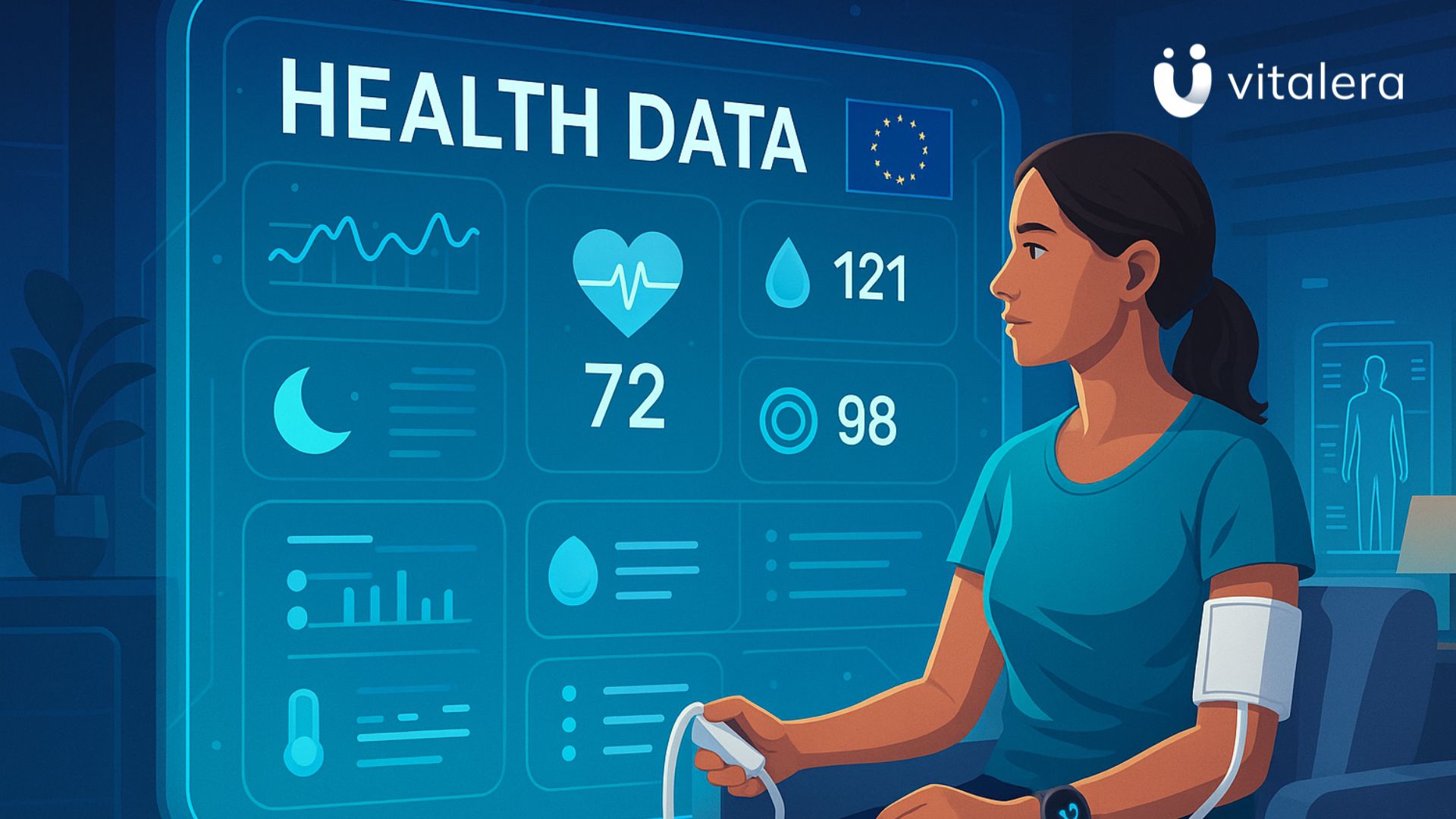Vitalera blog: inspiration, innovation, and action for a better
world.
vitalera achieves ISO/IEC 27001 certification
vitalera has officially obtained ISO/IEC 27001 certification, reinforcing its leadership in secure digital health solutions and remote patient monitoring. The certification, granted by CISQ/RINA and valid until 2028, confirms Vitalera’s commitment to the highest standards in information security, data protection, and healthcare innovation.
.jpg)
How vitalera Improves Point-of-Care: A Case with AstraZeneca’s #DiagnosticFC
The point of care (POC) is no longer confined to hospitals and clinics. Digital technologies—especially remote patient monitoring (RPM)—are transforming care delivery, enabling medical interventions to happen wherever the patient is: at home, at the gym, or within community hubs. This decentralized model addresses the pressing global healthcare challenges of aging populations, chronic diseases, and provider shortages.

Heart Failure Care with Remote Patient Monitoring | vitalera Doctor Testimonial
Discover how vitalera’s Remote Patient Monitoring improves heart failure care, reduces readmissions, and enhances patient engagement with real success stories, with the interoperable API.

vitalera and Maastricht University Medical Center Partner to Remote Monitor Post-DIEP Procedure Recovery
Vitalera, a leading medical platform in remote patient monitoring, partners with Maastricht University Medical Center (MUMC) to revolutionize post-DIEP recovery. Through AI-driven analytics, wearable tracking, and real-time monitoring, Vitalera enhances patient outcomes, reduces hospital readmissions, and sets a new standard in post-operative care.

Turning Health Data into Care: RPM, APIs, and Wearables
Discover how vitalera integrates medical devices, wearables, and secure RPM APIs to deliver real-time, compliant, data-driven healthcare at scale.

Vitalera and Daiichi Sankyo: Transforming Cardiac Care for 300 Patients with Remote Monitoring
Discover how Vitalera, in partnership with Daiichi Sankyo España, is revolutionizing cardiac rehabilitation for 300 patients at Hospital General Universitario Doctor Balmis. Through advanced remote patient monitoring, continuous care, and preventive strategies, we're improving health outcomes, reducing hospital visits, and supporting faster recoveries.
.jpg)










